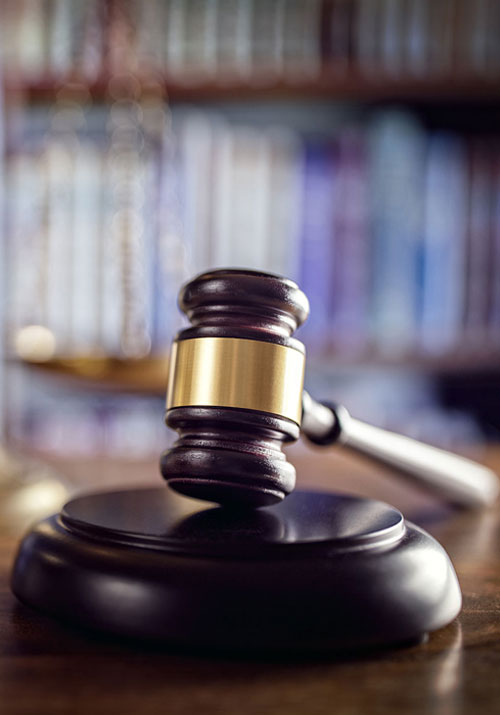This page provides some general information about the litigation process in British Columbia. It is not legal advice and parts may not be relevant to your claim. If you intend to start a lawsuit or have been named in a lawsuit you should contact a lawyer to get legal advice specific to your issues.
Initial review and investigation
Before a lawsuit is started a thorough review of the facts and evidence should be performed to ensure that the claim is being made or defended correctly.
Starting a Lawsuit
A lawsuit commences by submitting a legal document known as a Notice of Civil Claim (NOCC) at the Supreme Court Registry. In the NOCC, the individual or individuals starting the claim will be identified as the plaintiff(s), while the individual or individuals potentially responsible for their losses or injuries will be referred to as the defendant(s). The defendant typically files a Response to Civil Claim (RCC), and the NOCC and RCC together are known as the “pleadings” in the case. Throughout the litigation process, other formal court documents may be exchanged between the parties involved
Discovery of Documents
After the completion of the exchange of pleadings, which usually takes several weeks or even longer, all parties involved are obligated to produce a list of all documents in their possession or control that are relevant to the case. It is important to provide your lawyer with all documents early so that they can properly prepare your case. Your lawyer will determine what is relevant to the case and what is not and you are better to provide all documents, even if you do not think that they are important.
Examination for Discovery
An Examination for Discovery is an oral pre-trial examination under oath of each of the parties to the action. The Examination for Discovery does not involve a judge and does not take place in a courtroom. It is usually held at either a Court Reporter’s Office or in the boardroom of one of the lawyers’ offices.
Your examination for discovery evidence will form the basis for your evidence at trial. Therefore, it is important that your evidence is accurate and complete. For example, if you say that you are unable to remember some evidence that supports your position, you may not be able to rely on it later at trial. Additionally, if your evidence changes between the examination for discovery and the trial, this can be used by the opposing party to challenge your credibility. For these reasons, it is important that you review documents and records to refresh your memory before the examination for discovery.
Your behavior at an examination for discovery is very important. You should answer the questions asked by the opposing lawyer truthfully and not get involved in verbal arguments or give sarcastic replies. The other lawyer will be required to treat you with respect, and you should treat her or him them similarly, even if you do not like the lawyer. You should not guess at answers. If you do not know the answer to any question, you should say so and should not make any guesses. If you later remember the answer to a question that was asked, your lawyer can provide this later. It is your lawyer’s job to make sure that the other lawyer does not ask you any improper questions. Occasionally, your lawyer may object to a question that is asked. You should not answer a question that your lawyer has objected to.
Settlement Negotiations
During the life of your file, your lawyer review with you the evidence available and give you our best opinion as to a reasonable and satisfactory settlement of your claim. When you are ready to make an offer your lawyer will prepare a settlement letter to the opposing party, indicating the figure at which you are prepared to settle for. That figure may be accepted by the opposing party or some counterproposal might be made. You should be aware that if a counterproposal is made, it terminates any preceding offer.
While a great majority of lawsuits are settled before trial, many cases are not resolved until a week or even a few days before the trial itself.
Trials are an uncertain process, and it is never possible for your lawyer to guarantee success or how much money you will receive if the matter goes to trial. All your lawyer can do is provide you with legal opinion based on their previous experiences and existing case law involving other cases like yours. You should consider this when deciding on your settlement position.
Trial Procedure
Trials are extremely complicated. Each trial will be different but will follow the following structure.
Summary Trial
A summary trial in British Columbia is a legal proceeding that provides a faster and more streamlined method of resolving certain types of civil disputes. Summary trials rely on evidence provided in affidavits and witnesses to not appear in court. It is designed to be more expeditious and cost-effective than a full trial and is governed by the British Columbia Rules of Court. Summary trials are typically used for cases where the issues are straightforward, the facts are not in dispute, and a full trial is deemed unnecessary.
If you need any help, please feel free to contact us using the contact form below.
M-F 9:00-5:00
The Supreme Court Civil Rules govern the court process in British Columbia. It is an essential starting point for understanding the BC litigation process.
Decisions of the British Columbia Supreme Court and be appealed to the British Columbia Court of Appeal. Appeals must be filed within 30 days of the decision so it is important to act quickly.
British Columbia has a loser pays system for litigation. This means that the unsuccessful party will usually have to pay a portion of the successful party’s legal fees. Typically, an award of costs is significantly less than what the successful party will have paid in legal fees however.

